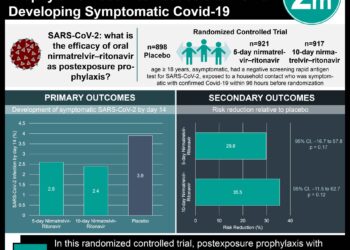Policy statement outlines recommendations on management of youth involved in the justice system during COVID-19 pandemic
1. The American Academy of Pediatrics (AAP) recommends that youth involved in the justice system during the COVID-19 pandemic be diverted or released from detention facilities to community-based services and supports as often as possible, within the constraints of public safety.
2. The AAP also recommends that youth who remain in confinement have appropriate access to health care, communication about COVID-19, distance learning materials, and video/phone communication with family and/or individual supports. Juvenile detention facilities should follow Centers for Disease Control and Prevention (CDC) guidance on management of COVID-19 in correctional facilities.
Statement Rundown: The AAP released recommendations for juvenile justice agencies to guide response to the COVID-19 pandemic. The recommendations were published in conjunction with the AAP policy statement “Advocacy and Collaborative Health Care for Justice-Involved Youth”, a revision of the 2011 policy Health Care for Youth in the Juvenile Justice System. The releases note the disproportionate impact of both the juvenile justice system and COVID-19 on historically disenfranchised communities, including poor and racial/ethnic minority communities. Youth involved in the justice system are more likely than other youth to have unmet medical, mental health, and social needs, and concern has been raised that juvenile detention facilities are not equipped to adequately respond to the COVID-19 pandemic. The AAP recommends that juvenile justice systems (1) reduce the transmission of COVID-19 in juvenile justice facilities, and (2) mitigate the negative effects of practices that may be required to reduce the transmission, guided by the following recommendations:
- Develop and publish COVID-19 response plans and ensure data regarding suspected and confirmed cases are publicly available, stratified by demographic characteristics.
- Ensure that youth and families are notified of suspected and confirmed cases in a timely manner.
- Release youth who can be safely cared for in their communities, with transition plans ensuring basic needs, including health insurance coverage.
- Within the constraints of public safety, reduce new admissions to juvenile detention facilities and increase the use of diversion strategies.
- Provide emergency funding to expand community-based services and supports for youth diverted or released from detention facilities.
- Given the financial strain that the disruption of the global economy is causing on many families, the assessment and collection of all fines levied on justice-involved youth and their families should be suspended.
- For youth who remain in confinement:
- Ensure appropriate access to physical, reproductive, and mental health care
- Ensure that facilities follow CDC guidance on management of COVID-19 in correctional and detention facilities.
- Provide adequate sanitation supplies for facilities and personal protective equipment for health care providers, staff, and youth.
- Provide youth with written and verbal communication about COVID-19.
- Ensure access to distance learning materials and developmentally appropriate programming.
- Allow youth to have frequent contact with family and/or supports with regular access to free phone calls or video chats.
- Limit the use of isolation (solitary confinement). If youth must be isolated for medical purposes, ensure access to personal belongings, education materials, reading materials, and regular contact with family/supports by phone or video chats.
- Ensure timely access to legal counsel and court hearings.
Click to read the article in Pediatrics
Click to read the policy statement in Pediatrics
Relevant reading: Adolescent Substance Use and Other Illegal Behaviors and Racial Disparities in Criminal Justice System Involvement: Findings From a US National Survey
Image: PD
©2020 2 Minute Medicine, Inc. All rights reserved. No works may be reproduced without expressed written consent from 2 Minute Medicine, Inc. Inquire about licensing here. No article should be construed as medical advice and is not intended as such by the authors or by 2 Minute Medicine, Inc.







